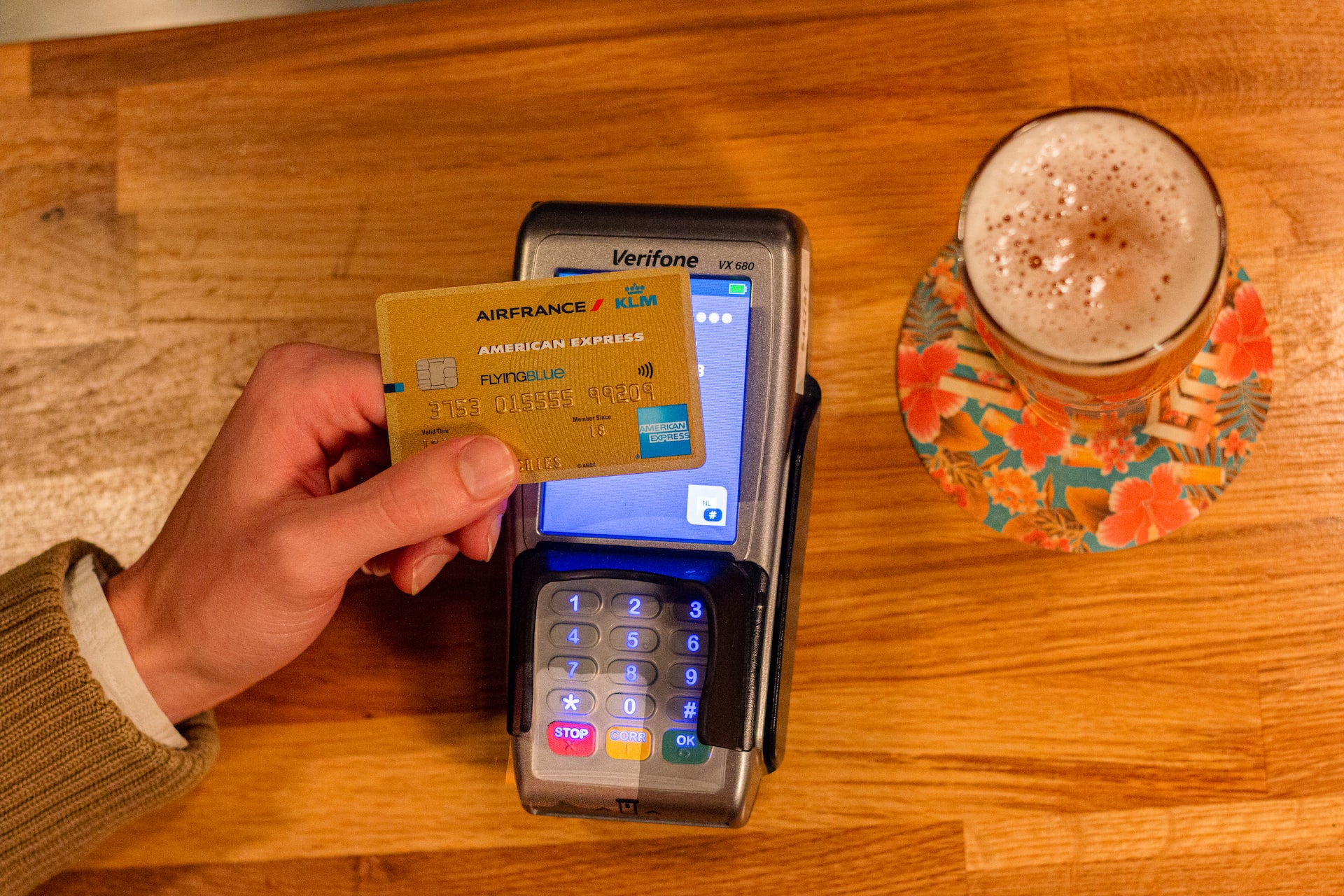Many people use credit cards to buy goods and services, but they don’t only help with purchases. Credit card companies report your payment history to the major credit bureaus, putting you in a better position to qualify for loans in the future. You can also get better terms and lower interest rates when you apply for financing. But what happens when you don’t have any credit history? Most credit card companies want to see sufficient credit history before giving you a card. However, most people start building credit with credit cards, creating a Catch-22. We will share some reasons why a segment of consumers do not have credit scores and easy ways to get started.
Why You Don’t Have a Credit History (Yet)
Once you accumulate credit history, you keep it forever. However, not every item stays on your credit report forever. Most negative items, such as late payments, will go off your credit report in seven years. Any consumer who endured bankruptcy may have it on their credit for 7 or 10 years, depending on the type of bankruptcy.
Once you have a credit history, you don’t have to worry about reclaiming it. Once you get a credit history, everything else happens in the background. Creditors report your payment history to credit bureaus, which can help your score if you pay on time. Unfortunately, not everyone has a credit history. If you don’t have credit, it could be for one of these reasons.
You’re Not Yet 18
Younger people have a more difficult path to a credit score. You can build credit before turning 18 and end up with a credit score, but it’s uncommon. Most people under 18 build their credit because they are authorized users who piggyback on someone else’s credit activity.
However, anyone 18 years or older can get into legal contracts and access more financial instruments. Being over 18 years old gives you more choices in establishing a credit history. You shouldn’t wait until graduating college or for a loan application before embarking on your credit-building journey. Credit building is a long-term process, and starting earlier puts you in a better position when it’s time to get financing for a big purchase.
You’re Just Starting To Build Credit
If you just started building credit, it won’t show up on your account right away. People build their credit history with every on-time payment. They borrow money with credit cards, loans, and other financial vehicles, but it can take up to 30 days after the billing cycle closes to see those items on your report. When you start building credit, you don’t have a credit history right away. Creditors must first report your payment activity to the credit bureaus. Then, you’ll have a credit history.
Using cash or a debit card to cover expenses will not build credit. This is because these transactions aren’t reported to the major credit bureaus. However, switching to a credit card and paying debt on time strengthens your credit history if you use your card responsibly. In addition, a good credit score puts you in a better position to qualify for things like a home mortgage or auto loan.
You’re A Migrant/International Student
Migrants and international students often receive debit cards to help with expenses. However, these financial transactions do not build a credit history. These students also face the disadvantages of a non-universal credit scoring system. Any financial activity overseas does not carry over in the U.S. You can have various overseas loans and responsibly repay debt. Still, it won’t establish a credit history in the U.S. Your credit history in the U.S. also won’t carry over overseas.
While this lack of communication can hurt if you have good credit in your native country, this dynamic helps people with poor credit start with a clean slate. If your credit history took a hit in your home country, you would come into the U.S. with a new beginning concerning your credit history.
The Importance of Credit History
A credit history makes it easier to get a credit card and any other loan. Some people may need to take out personal loans to cover expenses, and even more people will need a mortgage.
Creditors look at your credit history to determine if you can keep up with monthly payments. People with bad credit or no credit history will have less access to mortgages, personal loans, lines of credit, and other financial products. The few lenders willing to work with people who have no credit history will likely offer higher interest rates. On the other hand, a good credit history will help you get better rates for your loans. A high credit score is a good indicator that you can stay on top of your expenses and can help you qualify for the best credit cards.
What Do You Usually Need to Get a Credit Card
Credit card issuers don’t give cards out to everyone. Some people can’t pay back credit card balances and have to default on their debt; however, credit card issuers don’t want that to happen. So they want to make sure you adhere to a few parameters:
Age
You have to be 18 years or older to get a credit card. If you are not yet 18, you can build credit by becoming an authorized user. Authorized users build credit history related to the primary cardholder’s activity. A financially responsible cardholder will improve an authorized user’s credit. A cardholder who falls behind on debts will also hurt the authorized user’s score.
Source of Income
An income source helps you pay off credit card debt. Issuers will want to see an income source before giving you a credit card to ensure you can keep up with expenses. You may start off with a low credit limit if you have fewer income sources or a low salary. Credit card issuers will increase your credit limit if your income rises. You can ask for a credit limit increase, but some issuers do this automatically.
While any income will help, a consistent income gives you a greater advantage. Seasonal work comes and goes, but a full-time employee or business owner can end up with a higher credit limit and a greater likelihood of approval.
Credit Score/History
Credit card companies will review your credit history before giving you a card. They want to see if you can reliably honor debt payments on time. This can become problematic for consumers who do not yet have credit scores. But you don’t need a credit card to build your credit.
SSN or ITIN
You’ll need a social security number or individual tax identification number to obtain a credit card.
Build Credit Without a Credit Card
While a credit card is a popular way to build your FICO score, you don’t need one to get started. Consumers have more choices than ever, and those choices are getting more accessible. Not everyone likes the idea of going into credit card debt. We have highlighted some of the ways you can start building credit even if you can’t obtain a traditional credit card.
Get a Starter Credit Card
A starter credit card is just like a traditional credit card but has more restrictions. These secured credit cards often require a minimum security deposit to get started. This minimum security deposit becomes your credit limit. These cards teach effective money habits with a tighter cap than unsecured credit cards, which can have credit limits in the thousands of dollars.
Secured credit cards also have fewer requirements. You can get a card even if you have a bad FICO score or want to start building a credit history. Some credit card issuers make it easy to transition from a starter credit card to a traditional credit card if you reliably pay your bills on time each month. If the credit issuer does not provide an easy transition, you can still apply for a credit card, knowing your experience with the starter credit card gives you a better chance at approval.
Look for a Student Credit Card If You Attend College
Credit card issuers make it easier for college students to get unsecured credit cards. Over 26 million U.S. adults are credit invisible, meaning they do not have any credit history. Students can apply for a credit card with this designation even if they do not have a credit history. Once approved, cardholders can start building their credit. The card will either expire upon graduation or become a traditional credit card. Check with your credit card issuer before applying for a student credit card.
Take Out a Credit Builder Loan
Most people build their credit scores to get better loan terms and lower interest rates. Ironically, getting a loan can help you establish a credit history long before you get a credit card. Credit builder loans cater to consumers with low credit or no credit history. These loans are small, usually between $500 and $1,000 over a 6-24-month term. You also don’t get access to the loan proceeds until you finish making all of the monthly payments. Some lenders give you a portion of the capital early, but you have to pay your way to the loan principal with most lenders.
While that arrangement isn’t the best for mortgage applicants, these loans aren’t intended for purchases. Instead, lenders report your payment history to credit bureaus, which can improve your score if you pay on time. You can then get a traditional loan in the future and receive the proceeds upfront instead of at the end of the loan.
Get a Line of Credit
A credit card is a line of credit, but some lines of credit exist on their own. Some lenders provide lines of credit that are not connected to credit cards, and you can get in with lower requirements. Some lenders ignore your credit score when issuing lines of credit and focus on other variables, such as cash flow. A line of credit has the same dynamics as a credit card, excluding the card number, physical card, and rewards program.
Consider Applying for a Personal Loan
You can use a personal loan to cover any expense, and each repayment will improve your credit score. Personal loans also have lower interest rates than the typical credit card’s APR. However, a personal loan’s terms and rates depend on your credit score. If you only want to use a personal loan to build credit, you should start with a small loan, similar to a credit builder loan.
Don’t Pay Cash for Your Car
Financing your car instead of paying cash lets you make monthly loan payments that get reported to the major credit bureaus. You need loans and lines of credit to build your score, and an auto loan can be your path forward if you are looking to buy a car. Making a high down payment or increasing the loan’s duration will minimize the monthly payments.
Become an Authorized User for Someone Else’s Credit
Authorized users don’t have to do any work to improve their credit scores. A trustworthy family member, relative, or friend can pay their bills on time, and your credit will grow. Unfortunately, becoming an authorized user can hurt your credit score if the person you trusted falls behind on bills. You have to fully trust the primary cardholder’s ability to manage their money and repay financial obligations.
Ask Your Landlord and Utility Company to Report Your Payments
Creditors want to see that you can reliably repay financial obligations before giving you a loan. If you don’t have a mortgage, rent is likely your largest expense. Renters and homeowners also face utility bills that demonstrate consistent, on-time payments. You can ask your landlord to report monthly rent payments to the major credit bureaus so you receive credit for them. If your landlord does not report payments to the credit bureaus, you can use a service like Level Credit or Rent Reporters to have your rent payments show up on your credit report. Some of these services also report utility bills on your behalf.
Pay Student Loans on Time
If you have student debt, the monthly loan payments will appear on your credit report. Making on-time payments will improve your credit score and help you qualify for better loans in the future. Of course, you shouldn’t incur student loans just for your credit score, but many students take out student loans to afford a college education. Staying on top of your student loans is essential since late payments will hurt your credit score.
Best Secured Credit Cards If You Are Getting Started
If you want to build your credit score using a card but don’t have an existing credit history, a secured credit card can be a great option. These cards are more accessible, and most financial institutions offer them. We have compiled a list of five secured credit cards that can help you get started.
Capital One Platinum Secured card
The Capital One Platinum Secured card has no annual fees and offers a path to an unsecured credit card if you pay bills on time. You can see recurring monthly transactions from your dashboard, so you don’t get surprised by subscription costs. Even with the list of subscriptions, some people may forget to send a payment. The Capital One Platinum Secured card includes autopay, which automatically makes payments toward your credit balance each month.
You can start with a $200 credit line, but you can increase your credit limit with a higher security deposit of up to $1,000. On the other hand, you can get started with a security deposit as low as $49. Capital One will give you the security deposit back if you use your credit card responsibly over a long period of time.
Citi Secured Mastercard
The Citi Secured Mastercard has a more generous credit limit range for a starter card and no annual fees. Cardholders can get a credit line between $200 and $2,500, depending on their security deposit. Citibank will review your income and debt to make sure you qualify for a secured credit card. You can set reminders about upcoming payments and deadlines to avoid falling behind. Citibank also has account protection, a standard feature across financial institutions partnering with credit card issuers. You will have a $0 liability on unauthorized purchases.
Discover It Secured Credit Card
It’s become more common for secured credit cards to skip the annual fees. However, the Discover It Secured Credit Card has rewards, an advantage you won’t find with every secured credit card. You can get 2% cashback at restaurants and gas stations on up to $1,000 in combined purchases within a quarter. All other expenses qualify for 1% cashback.
The secured card also has a 2x cashback perk through Cashback Match. For the first year of using the Discover It Secured Credit Card, your cashback rewards get doubled at the end of the year. This program incentivizes aspiring credit cardholders who will spend right away, but anyone can benefit. The Cashback Match program is especially useful if you plan your credit card activation around a time when expenses will be higher than usual.
Discover It Secured Credit Cards have a $200 minimum security deposit requirement, but you can make a higher deposit to raise your credit limit. Discover will review your credit card activity after seven months to determine if you’re ready for an unsecured card. If Discover switches you to a traditional credit card, you will receive your security deposit back.
Bank of America Secured Credit Card
The Bank of America Secured Credit Card has no annual fees and a $200 minimum security deposit requirement. While a $200 requirement is common across financial institutions, the Bank of America Secured Credit Card has a maximum security deposit of $5,000. The steep deposit would give you a high credit limit, which would help your credit utilization ratio. Your income and ability to repay the credit line also impact your credit limit. Bank of America will notify you about upcoming due dates and shield you with a $0 liability fee for unauthorized purchases.
OpenSky Secured Visa Credit Card
OpenSky does not run a credit check when you apply for their secured Visa credit card. Your credit limit will range from $200 to $3,000, depending on the size of your refundable security deposit. OpenSky lets you set up email alerts so you don’t miss email payments, and they report your credit activity to the major bureaus.
OpenSky has no hidden fees that they tuck away in legal jargon. However, they have a $35 annual fee. It’s relatively easy to get this secured credit card, but you should work on a quick transition to an unsecured credit card to get out of the annual fee.
Factors You Should Consider in Getting Your Credit Card
Consumers can select from many credit card companies. Unfortunately, each company also offers several credit cards, further complicating an important financial decision. Reviewing these factors will help you find the right credit card for your needs.
Type of Card
Prospective credit cardholders can choose between unsecured, secured, and store credit cards. Each card has several subcategories, such as cashback, rewards, and travel point cards. You may initially opt for a secured credit card since it’s an easier path to entry if you have no credit history. However, you can get more selective once you build a strong credit history.
Requirements
Secured credit cards often require a minimum security deposit before you can get started. Most credit card issuers will also check your income and debt to ensure you can handle a line of credit. In addition, high-end credit cards have minimum spending requirements you must maintain to continue using the card. Review the requirements before applying so you don’t get the wrong card or trigger too many hard inquiries. Each hard inquiry will lower your score. One hard inquiry is fine, but having many of them can become problematic.
Interest Rate
Traditional credit cardholders accumulate debt. The interest rate does not matter if you pay all credit card debt on time. But you may not make every payment on time. Late payments accrue interest, and the rate impacts how much you’ll spend. Credit cards have double-digit interest rates, but some are higher than others. So, even if you anticipate paying your credit card balance on time, you should check the interest rates to ensure you get a reasonable deal. Many credit card issuers offer a short-term grace period where they won’t charge interest on your credit card debt.
Some credit cardholders apply for a new credit card and transfer the balance to capitalize on the grace period. Of course, you will still owe the debt, but an introductory 0% APR prevents the debt snowball from accumulating and gives you more time to repay the balance.
Fees and Other Charges
Some credit card issuers charge excessive fees to use their cards. You should review a card’s fee structure before committing to their card. Most cards charge late fees, application fees, and over-the-limit fees. A few credit cards also charge annual fees even if you pay your debt on time. Even if you think late fees will never apply to you, compare those fees across each credit card. It is better to know what to expect and choose a better credit card than to end up with a card with unreasonable fees.
Credit Limit
A higher credit limit lets you borrow additional funds if you need extra cash. This high limit can also improve your credit utilization ratio, a component that makes up 30% of your FICO score. People who have a limited credit history or a bad credit score may have to make a security deposit for a secured credit card. However, you can get a higher credit limit if you get an unsecured credit card.
Rewards and Perks
Some credit cards offer unlimited 1.5% cash back rewards on every purchase and reward you for responsible card use. However, perks can extend beyond points, cashback, or mileage. Some cards have free subscriptions to streaming platforms, travel insurance, and other benefits to sweeten the deal.
Terms and Conditions
The terms and conditions will reveal important information about rates and fees. You can see what warrants a higher interest rate, how much you can expect to pay for a cash advance fee and other details.
Are There Benefits for People with No Credit History?
Not really, but it’s better than having bad credit. Lenders look at your credit before giving out loans. Most lenders use credit score requirements to filter applicants and reduce risk. You probably won’t get a mortgage or auto loan if you don’t have a credit history. It doesn’t matter if you have responsibly made payments with your debit card because the lender won’t see any of that history in your credit report.
What are the Risks of Getting a Credit Card with No Credit History?
The main risk with getting a credit card before building a credit history is that you can get stuck with higher rates and fees. If you pay off your balance in full at the end of each month, you can avoid most of the downsides of a no-history credit card.
The only other disadvantage that usually shows up is that you have to make a security deposit, which becomes your credit limit. However, you’ll get this security deposit back if you close your credit card account or upgrade to an unsecured credit card.
How to Get a Credit Card with No Credit History
It’s possible to get a credit card even if you have no credit history. These are some of your options.
Secured Credit Cards
These cards are easier to get than unsecured credit cards, but they require initial security deposits. You may have to put down a few hundred dollars, and the amount you put down becomes your credit limit. It’s a good choice for a first credit card and can put you in the right direction toward building a positive credit history.
Student Credit Card
Students can qualify for student credit cards even if they have no credit. These cards have lower credit limits and higher interest rates, but they can be a good option if you want to get started.
Retail Store Credit Cards
Some retailers offer credit cards that let their customers score discounts on their products. These cards don’t have the best perks, but you can eventually upgrade to a better card if you boost your credit score.
Co-Signed Credit Cards
Having a high-credit individual co-sign a credit card application with you can increase your chances of getting approved. The co-signer becomes legally responsible for covering the borrower’s debt if that individual can’t repay. Co-signing is risky for the co-signer, so this will usually be a friend or a family member.
Authorized User Status
You can become an authorized user on someone else’s credit card account. Authorized users benefit when the primary user makes on-time payments. However, authorized users will lose points on their credit scores if the primary account owner does not pay the debt on time. It’s important to only become an authorized user for someone who pays their bills on time.
Easily Get a Credit Card Even with No Credit History
A responsible line of credit through a secured credit card is the perfect balance for many consumers. You get a resource that gives you more financial flexibility and credit without committing to the risks of an unsecured credit card. You won’t have to worry about incurring insurmountable debt due to overextending your credit limits and getting hit with fees. Improving your credit makes it easier to qualify for essential loans that influence where you live, what car you drive, and other critical details. Unfortunately, most people feel held back by a nonexistent credit history, but you don’t have to remain in that position for long.
Conclusion: There are Many Options to Get a Credit Card with No Credit History
You can choose from various types of credit cards to get established even if you do not have any credit history. While there are many choices, it’s essential to assess your financial situation and determine what you need from a card. You won’t have many rewards programs and other perks to choose from, but you can still compare each card’s rate and terms. As you build credit, you’ll put yourself in a better position to qualify for the top unsecured credit cards in the industry.
FAQs About Credit Cards With No Credit History
Yes. Some types of credit cards do not require any credit to obtain. You can even get a credit card if you have bad credit.
Lenders can deny access to credit if you do not have a credit history. You will have fewer choices for credit cards and loans if you do not have a credit history.
It can take several months to build a good credit score from scratch. You have to stay consistent, but people who regularly pay their bills on time can achieve their goals sooner.







